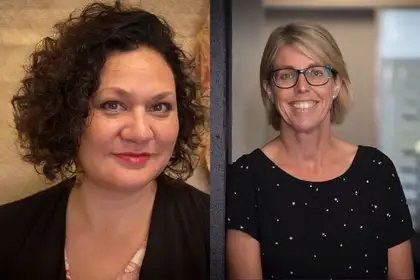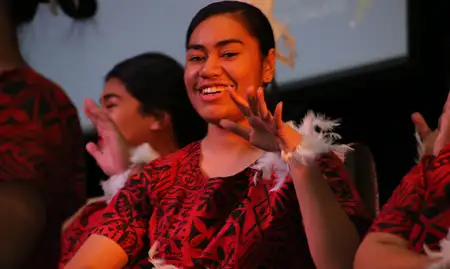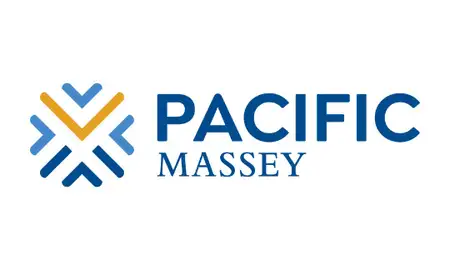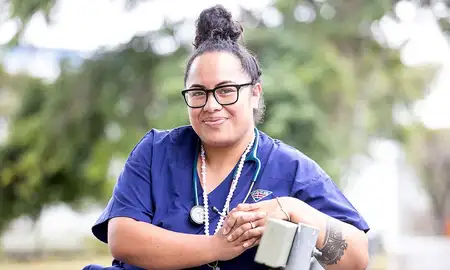
Associate Professor Tracie Mafile’o and Associate Professor Kathryn Hay
As a result of the majority of staff who interact with Pacific students being non-Pacific, existing work-integrated learning frameworks have predominantly been developed by non-Pacific academics.
Funded by the Massey University Research Fund, Associate Professor Kathryn Hay and Associate Professor Tracie Mafile’o are bridging that gap of literature by developing a model of Work-integrated Learning for Pacific students. Their work is expanding on researcher Mary Autagavaia’s ‘Pacific Island social work supervision model’.
Their research article, Improving work-integrated learning experiences for Pacific students, has recently been published in the International Journal of Work-Integrated Learning. For their research, they were supported by Sesimani Havea who interviewed six Pacific graduates. The findings from the research enabled them to develop a model for supporting Pacific work-integrated learning students. Highlighted within the structured model are three domains – personal, cultural and professional.
Dr Hay says Pacific students have a strong sense of self, and that empowering their cultural and ethnic identity is valuable to both higher education institutes and work-integrated learning host organisations.
“Acknowledging a student’s culture means we are respecting who they are, what their values are, and it means that we are showing cultural humility.” Dr. Hay says.
She adds that interdependence, collectivism and community are common in Pacific educational frameworks.
“As Pacific peoples, we tend to be more collective in our approach, rather than individual, serving our families and communities. Pacific students are more likely to succeed when there is an integration of these important strengths and values in the work-integrated learning system” Dr Mafile’o says.
“We need to consider how we can move away from the notion that we are working with individual students, to being mindful that students are part of whānau or aiga, and their primary responsibilities are usually not to their study but to their families “ Dr Hay says.
She adds that inclusivity of formalised cultural insightfulness is key to the success of Pacific students undertaking work-integrated learning.
“As higher educational institutes dedicate themselves to accommodate the diversified student body, it is paramount that new models support more collaborative approaches within the work-integrated learning curriculum.This presents a challenge to work-integrated learning staff and current resourcing structures.””
Dr Hay and Dr Mafile’o would like to thank and acknowledge Sesimani Havea for being the interviewer in this study.
Related news
Project to ensure Pacific voices are heard in education
Integrating Pacific cultural concepts and knowledge into classroom learning and in reporting to parents is at the heart of a project designed to bolster Pacific student achievement.

Refreshed look and new name for Massey’s Pacific community
A new logo, pattern and name has been created to encompass Massey’s Pacific staff and students, inspired by Pacific nations and their connection to Aotearoa New Zealand. As well as the new marketing assets, Pacific@Massey will now be known as Pacific Massey.

Massey graduate is Wellington’s first Pacific Nurse Practitioner
Catherine Tu'akalau is Wellington's first Pacific Nurse Practitioner and one of only a handful in Aotearoa New Zealand specialising in child health.
